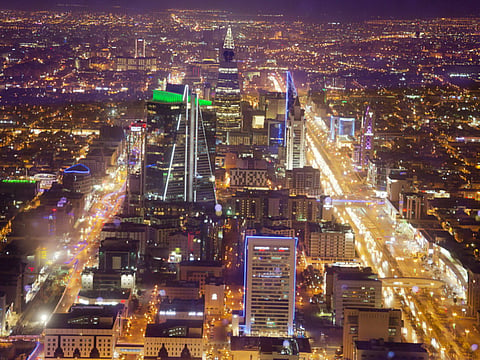A congregation for all in Saudi Arabia
Sermons should focus on topics that concern us all. Preachers should talk about real issues facing everyday life

Friday prayers at the mosque nowadays are not simply about going through the motions for Muslims. They are a necessary part of bonding with other Muslims from around the neighbourhood, many of whom are tied up with work or other assignments. Friday prayers are also an opportunity for Muslims to listen to the sermons of the preacher who leads the prayers in hope of enlightenment to their spiritual being.
As I make my way to the mosque for Friday prayers in Saudi Arabia, I often find myself wondering what the sermon of the day would be. The topics of recent times have not been inspiring enough. I must admit that I have found myself becoming increasingly dissatisfied at some of the topics that the preachers choose to dwell upon.
I am sure that other readers would agree that sermons on historical incidents that hold little relevance to today’s times have little to do with us and do not necessarily address the real-time issues facing us collectively in Saudi Arabia.
And for those inclined to learn more about such material, there are plenty of well-researched books on religious history that provide a much more thorough analysis.
Nor am I interested to hear about the goings-on in the Middle East or anywhere else on this planet, in a prayer hall. We have live TV and other media outlets for that and they are often lucid enough to leave no question unanswered. In view of that, I do not want preachers to dwell upon the ills of the East or West, when we have plenty of our own to contend with!
I would, on the other hand, welcome sermons that focus on subjects that residents of Saudi Arabia have to contend with in their everyday life. Themes on social and civic responsibilities that seem to have been either ignored or forgotten. A clear stand
I would like to hear a preacher address the evils of corruption and neglect of duty, especially among those in the civil sectors whose duty is to provide efficient public services. While our media often carries such news, very little about those ills, on which our religion has a clear stand, is brought up in the prayer halls. The rights of workers is another theme that I would like to hear being spoken about more often during the Friday sermons. Islam offers us many examples of righteous and humane treatment of those under us, and these must be hammered out regularly to get the message across to those who continue with abuse of power and authority.
The respect for law and order is a theme that also needs to be stressed. Many pay just lip service by nodding their heads during such sermons, only to be seen flinging trash out of their car windows once they are seated inside on their way back from the mosque.
The protection and cleanliness of our environment is another area that our religious scholars should emphasise upon. A drive around the city convinces me that this is an area of concern that should be raised during Friday sermons. Those callous enough to be unhygienic should be alerted about the evils of such habits.
Our propensity to promise but failure to deliver and our lack of discipline and ethics in the workplace should be topics for our preachers to expand on.
Tired sermons
Our respect for laws on roads or in queues should be another subject for discussion. It is Islamic to be respectful of one another in such situations, and yet how often do we actually observe such dictums?
Tolerance of one another, regardless of faith or background, is something very important and it has been enumerated in Islam. Preachers ought to think out of the box and talk about these issues, instead of harping on topics that we are tired of hearing.
And while we are at it, I would like to see translated copies of such preaching distributed to those attending sermons and whose Arabic understanding is limited. A glance around any mosque during Friday prayers confirms a sizeable percentage of expatriates. Copies in Hindi, Bangla, Malayalam, Bahasa Indonesia, English and Tagalog would facilitate a better understanding of Islam and its virtues among people. Preachers should understand that their patrons come from all walks of life and from diverse professions.
Friday congregations, when the majority of Saudi Arabia has its ears tuned to the exhortations from the pulpit, should thus be more tailored to address present-day issues and concerns. With such a captive audience, it would be a shame not to take full advantage of it. They are, after all, a congregation of open ears.
Tariq A. Al Maeena is a Saudi socio-political commentator. He lives in Jeddah, Saudi Arabia. You can follow him on Twitter: @talmaeena.


